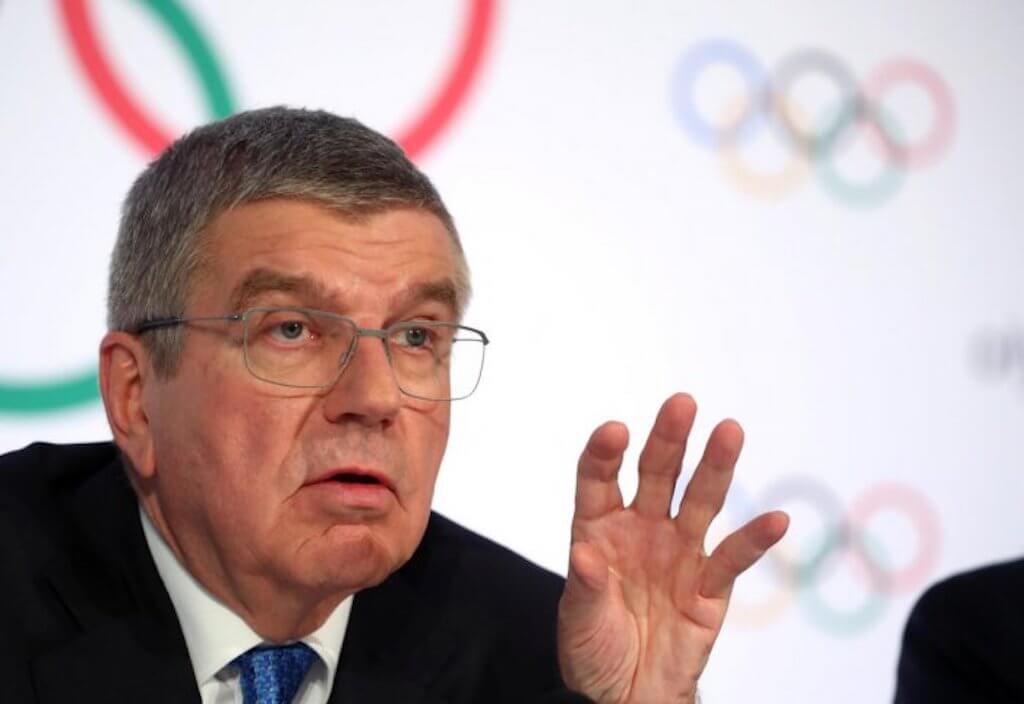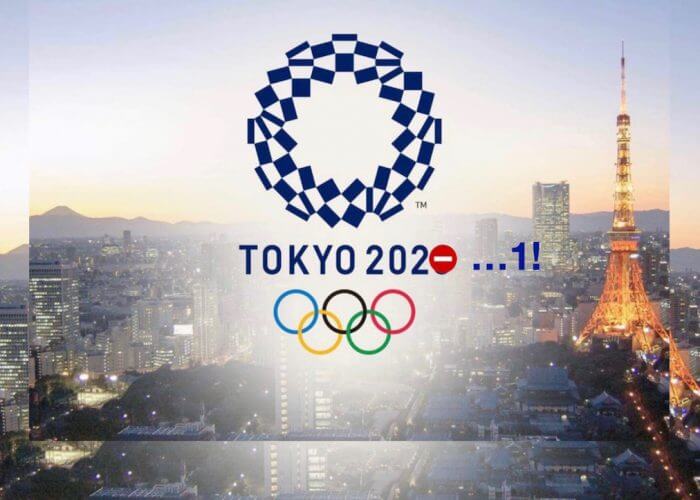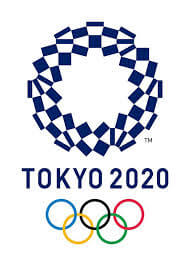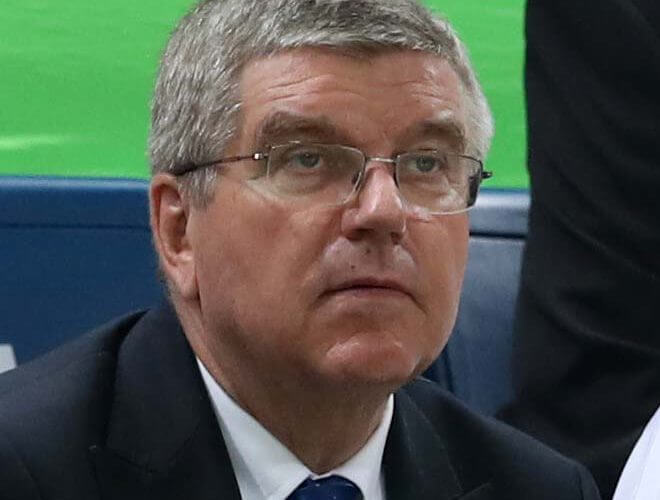What the German Papers Said: Bach, An Olympic Fencing Champ Who May Fall On His Sword

Editorial content for the 2021 Tokyo Olympic Games coverage is sponsored by GMX7.
See full event coverage. Follow GMX7 on Instagram at @GMX7training #gmx7

Commentary
Thomas Bach, the Olympic Pope, and his Pontificates at the International Olympic Committee (IOC), are roundly criticised in media commentaries the world over today after a u-turn that met the demands of athletes, coaches and domestic sports federations for postponement of the Tokyo 2020 Olympic Games but came too late for governance to save its face.
Herr Bach comes in for particular roasting in his home country of Germany, as our round-up of leading commentaries shows. The Nobel Peace Prize is not the only craving that will have to be dropped, say the leader writers.
The red thread of their words leads us to a cliff-edge of questions about Olympic governance. Bach and other Olympic bosses dragged their heels long after athletes and others had made up their minds: the Olympic Games would have to be postponed because of the massive impact on all of the coronavirus (COVID-19) pandemic.
Athletes were the heroes of the day as the postponement was announced, Germany’s leading titles all concur in commentaries that effectively call on the 1976 Olympic fencing team champion to fall on his professional and proverbial sword.
What the German Papers Said:
Sueddeutsche Zeitung

Photo Courtesy:
The IOC “had denied reality for far too long and done enormous damage:, writes Knuth.
Just a month ago, Olympic bosses were “spouting serenity … the Games and Paralympics go on, no need for a plan B”, in statements that were “as reliable as words from the mouth of US President Trump”, Knuth opines.
Bach “must have know the truth”: he is the “puppet master who always anticipates and stabs as he did on the fencing piste in the past”.
No killing a highly infections virus that way, though, Knuth suggests.
There was money and associated issues to concern when it came to taking a decision that needed to be taken but there was something else in the mix, says Knuth.
He notes the social contacts, the hopes and dreams and plans that everyone is having to put on hold well beyond sport and cites American pole vaulter Sandi Morris when she noted that champion athletes have to be selfish to achieve their goals. Yet, writes Knuth: “… in this crisis, Morris and almost all colleagues in sport soon understood, health was paramount”.
“And the IOC? Until the end … it never gave the impression that it understood that it and its Games are currently dispensable. It may be difficult for many dignitaries, who have been jetting around the world for years in first class, are courted by heads of state and believe that they have long earned the Nobel Peace Prize for their noble work.”
“There’s not been much sport of late but the IOC still managed to set an Olympic record: as the most alien of strangers among strangers to the real world.”
Knuth adds that the “damage is already huge”, in terms of athletes having been pressed to push on with training regimes even when isolation was recommended, made training impossible or came with a struggle that this author sums up like this: treating athletes to special exemption when “all for one and one for all” is about whole nations, not champions and teammates, puts the athlete in conflict with their fellow humans.
It took athlete and others to press the IOC into action. Unseen consequences lie ahead, suggests Knuth:
“Bach’s re-election is also coming up next year. At least that was the plan.”
He concludes: “Such developments always have an ambivalent power: the uprising from the ranks (athletes and federations) tells us how serious grievances are at the helm.”
That augurs well for the future, Knuth opines before noting:
“No medals will be distributed in Tokyo this summer – but many athletes have already earned a collective one – worth its weight in gold.”
Der Spiegel + Sport & Politics
- “Abrupt change of course … how IOC President Thomas duped everyone” – is the theme in the headline summing up a commentary in Der Spiegel by leading Olympic politics writer and investigative journalist Jens Weinreich.
- Weinreich picks up all those points and goes further on his own website, Sport & Politics
Olympic bosses “postulating over an event that is already devouring almost 30 billion have played with the health of more than ten thousand Olympic athletes and have simply not shown responsibility … The world won’t forget.”
“Ultimately, athletes, in particular, forced what could not have been prevented”, he writes.
Now, with the Games heading to 2021, “athletics and swimming … will dictate around a third of all Olympic decision-making [because they have] World Championships scheduled for next year. Such details are subordinate and can be clarified in a matter of hours,” Weinreich suggests, knowing from a wealth of experience with the “Olympic family” that many more than a matter of hours will pass before certainly is provided.
Herr Bach is even deaf to Olympic leaders in his own country, Weinreich points out as he notes that even the vast costs to Japan and Tokyo 2020 is not the most important matter this summer:
“Because it’s about human life. DOSB (German Olympic Committee) President Alfons Hörmann, who went into quarantine today after his son tested positive for the corona virus, recently put it dramatically but appropriately – ‘Now it’s about human survival and not the question of some gold, silver, or bronze medals.’
 Of all the coverage in the media, Weinreich’s insight cuts deepest when it comes to recording hugely uncomfortable truths that ought to have Governments around the world taking a sharp instrument to the bubble of Olympic autonomy, at domestic level, too, in a realm that has shown itself incapable of self-regulation and incapable of leading in a crisis and ever forced to react to the stances and threats of athletes, coaches and those federations brave enough to speak out. Writes Weinreich:
Of all the coverage in the media, Weinreich’s insight cuts deepest when it comes to recording hugely uncomfortable truths that ought to have Governments around the world taking a sharp instrument to the bubble of Olympic autonomy, at domestic level, too, in a realm that has shown itself incapable of self-regulation and incapable of leading in a crisis and ever forced to react to the stances and threats of athletes, coaches and those federations brave enough to speak out. Writes Weinreich:
“It is important to note for the history books that seven days ago, none of the 33 Olympic international sports federations (such as FINA) opposed the continuation of summer sport when the IOC saw no reason to change the scheduled Opening Ceremony on July 24, 2020 in Tokyo. Everyone approved an unworthy communiqué.”
“It is important to note for the history books that none of the 206 National Olympic Committees worldwide opposed the IOC’s plans six days ago. In a teleconference with Thomas Bach, all 50 European NOCs, including the DOSB (Germany), unconditionally supported the course of the president.”
“And it is important to note for the history books that it was Olympic athletes from all over the world who forced the u-turn. Above all, the Canadian Hayley Wickenheiser, herself an IOC member: she was one of the first prominent athletes to demand “humanity” from the IOC and immediate action. Wickenheiser was then reprimanded by the IOC administration – Bach does not like to see deviations from on-message unity of opinion.”
Wickenheiser, a four-times Olympic champion in ice hockey and trainee doctor, “has just spent two and a half months in the emergency room and seen the horrors”, notes Weinreich. She spoke to Bach on the telephone on Monday. Perhaps he listened.
It was “sad” that it came to this, he writes: that “athletes had to force the decision” in the face of the “stubbornness, legal concerns, odd behaviour and power games that dominated” the discussion of Olympic bosses.
Weinreich notes, as this author and many others have in the past 24 hours, that postponement represents “a victory for mature athletes”.
It is, he suggests, “a Pyrrhic victory” that came with further “loss of reputation … for an IOC leadership that, like Bach, always claims to speak and act for the athletes” but will now be forced to acknowledge the “fourth pillar – that of the athletes” of its home (alongside IOC, NOCs and international federations) if it is to save the edifice from crumbling.
The march of athlete representation from outside the house is “unstoppable”.
Thomas Bach carries “full responsibility” for “the shameful events surrounding this late Olympic shift”.
In a clarion call for change, Weinreich concludes:
“The undemocratic, non-transparent customs in the Olympic family, which are promoted yet by Bach’s dictatorial behaviour, made it hard to arrive at a solution. That sticks – and will determine the tone of debate in the coming months. The Olympic system will have to renew itself.
“Life punishes those who come too late.”
Die Welt
“After weeks of crippling uncertainty,” Bach and Co came to a tardy decision, he writes before driving the épée home:
“The German official lost his marksmanship long ago.”
” … the protagonists of the world’s greatest sports spectacle were not even capable of being consistent in the announcement of a postponement,” says Die Welt, with a nod to how the news broke, the Prime Minister of Japan providing one version of who said what to whom and when, the IOC claiming to have acted on World Health Organization advice that’s been around for many weeks.
As Der Spiegel and others note in various ways, there was not a mention in the joint statement own postponement of the flood of demands from athletes and federations around the world and poll counts that left Olympic bosses with no more waiting rooms to sit in. Die Welt spells that out by saying that the decision to postpone was “long overdue” and that “athletes such as Germany’s athlete spokesman Max Hartung and the entire Canadian team had announced their boycott [of Tokyo 2020] in the event that the IOC wanted to stick to its original schedule”.

Thomas Bach – Photo Courtesy: Jeff Swinger-USA TODAY Sports
“Bach … was exposed and forced to act,” more quickly than the four-week window of further delay he had announced less that 48 hours before Olympic bosses had their minds made up by athletes and events.
Bach, writes Die Welt, is not the reformer he would like us to believe he is. Rather, he remains “the would-be reformer” at the helm of an Olympic Games budget swollen from and estimated nine billion euros to a 27-billion euro bombshell that the coronavirus pandemic is about to send skywards yet again. A hit of a further 5 billion and more is now predicted.
Bach had staked his reputation on containing the endless growth and unsustainable expansion of the Games. “All in vain”, says Die Welt.
“During his tenure, the €33 billion Winter Games in the Russian Black Sea city of Sochi was dominated by the doping scandals of the host … the functionary [Bach] and his colleagues on the board of directors have long since converted the Olympic motto “higher, faster, further” into “richer, more insane, unscrupulous”.
Bach was guilty of “a mixture of naivety and negligence” and he and his fellow Olympic Popes now “go down in history as the fathers of the most expensive cancellation of a sports event”.
Berliner Zeitung
Bach, 66 and “an inflexible official”, has embarrassed himself as the most powerful man in sport in the past few weeks”, writes Lotter in his leader.
“In a precarious crisis situation, he unmasked himself as a very inflexible official and manager, one who apparently is less concerned about the well-being and woe of athletes and spectators than about [monetary impact].”
Frankfurter Allgemeine
“Who could have imagined that the world of sport would breathe again because the Olympic Games were switched off?” she ponders.
The postponement of the games represented “an unprecedented act of considerable historical significance in sport … with serious consequences”
There was, however, “no choice” but the right one after a “painfully slow process”.
Now begins Plan B, Japan’s cherry-blossom season of March-April next year one possible new date for the destiny of the 2020 Games but a July-August date precisely a year beyond the original schedule in Tokyo “would be the fairest solution for athletes”, the new qualification cycle ahead and a better balance of fair play, suggests Simeoni.
- All commentaries are the opinion of the author and do not necessarily reflect the views of Swimming World Magazine, the International Swimming Hall of Fame, nor its staff.
Our Coverage On A First For Olympic History
- Olympics officially postponed to 2021
- Grant Hackett Says Tokyo 2021 Will Provide Inspiration to The World Just When It Needs It
- It May Be Lights Out On Tokyo 2020 But Flame Now Burning For 2021
- Ryan Lochte Still 100% In On Tokyo Olympics Despite His Age and Year-Long Postponement
- Olympic Postponement Brings Sadness, Resolution, Resilience, Say Top Coaches
- Elite Swimmers on Olympics Move to 2021: Reaction From Around the World
- Tokyo 2021 ‘A Bitter-Sweet Victory For The Collective Power Of Athletes’
- USA Swimming in solidarity with postponement
- Adam Peaty ‘This is a matter of life or death’
- Olympic Postponement Brings Sadness, Resolution, Resilience, Say Top Coaches
- In Search Of A Silver Lining for Open Water Swimmers In Trying Times
- FINA Breaks Silence: Fukuoka 2021 World Titles In Focus As Tokyo 2021 Shuffles The Deck
- Paralympic Athletes & Committee Welcome Decision To Shunt Tokyo 2020 To Tokyo 2021
- British Swimming & British Olympic Association: Postponement Is The Right Decision
- Commentary on the cusp of U-turn: How Olympic Popes Finished Last In Tokyo 2020 Race
- Jacob Heidtmann: Coronavirus A Chance To Reassess, Find Perspective, Embrace Solidarity
- Jacco Verhaeren’s Message To The Australian Dolphins: “Give Yourself Time And Space.”





Bach also admitted cancellation of the Olympics was on the table ( so he earlier lied to the media when he said it wasn’t?) but it wasn’t the option the IOC wanted to progress or consider.
I don’t think he was lying at that moment… it was akin to a threat and a way of telling anyone advocating ‘postponement’ that it was all or nothing, so best go for all, under any circumstance until others said those circumstances were unacceptable..
The good in this is that maybe finally finally athletes and coaches especially in swimming are beginning to understand that they actually have power and they don’t have to lay back and get crapped on over and over again. This going back all the way to the East German Doping and re- allocating medals and records. FINA can be totally overhauled and so on if necessary. But the athletes and coaches have to unify to get it done if that is what they want. This virus is although so tragic is proving to be a touchstone for all the faults in Sport, economics, government, medicine, etc. Remember after the boycott in ’84 the positive outcome ( of a terrible decision in my opinion) was that athletes particularly women keep on competing into their ( gasp) college years. And title IX got cemented in. So my overall long winded point is that athletes can choose this moment to take control of their sport and make it what they deserve.
Absolutely, Jeff.